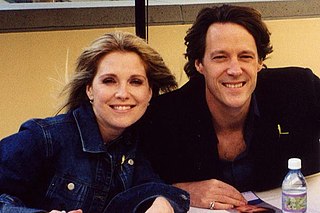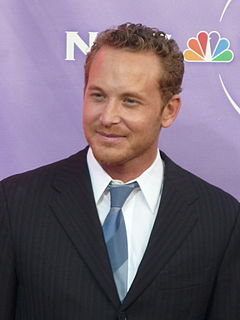A Quote by Lilli Palmer
I had to learn that a good actor, like an iceberg, reveals only a small part of his ability on the surface. You suggest; you don't serve on a platter. You hold back. You don't expose it all to view. That's the way to put the audience's imagination to work.
Related Quotes
Henry Corbin creates the world - most of all his examination of the imagination and what the imagination was for him. Some philosophers would think of the imagination as a synthetic ability, how you put different things together. Artists more think of the imagination as creativity. So I really like the way that he presents the imagination as a faculty that allows one to experience worlds that are not exactly physical but are real nonetheless.
Men whose only concern is other people's opinion of them are like actors who put on a poor performance to win the applause of people of poor taste; some of them would be capable of good acting in front of a good audience. A decent man plays his part to the best of his ability, regardless of the taste of the gallery.
Stage charm guarantees in advance an actor's hold on the audience, it helps him to carry over to large numbers of people his creative purposes. It enhances his roles and his art. Yet it is of utmost importance that he use this precious gift with prudence, wisdom, and modesty. It is a great shame when he does not realize this and goes on to exploit, to play on his ability to charm.
If we treat another person as essentially bad, we dehumanize him or her. If we take the view that every human being has some good in them, even if it is only 0.1 percent of their makeup, then by focusing on their good part, we humanize them. By acknowledging and attending to and rewarding their good part, we allow it to grow, like a small flower in a desert.
I always tell that to young people - go to college, do theater, work with an audience. Don't try to learn how to act in front of millions and millions of people. Don't make that your first ambition, to be on a sitcom or get into the movies. Learn who you are as an actor, and the best way to do that is to do it in front of an audience.
I do think - I always tell that to young people - go to college, do theater, work with an audience. Don't try to learn how to act in front of millions and millions of people. Don't make that your first ambition, to be on a sitcom or get into the movies. Learn who you are as an actor, and the best way to do that is to do it in front of an audience.
If we fully trust that God is as beautiful as he reveals himself to be on the cross, we must regard the ugly surface appearance of these portraits to reflect the sinful way his people imagined God, not the way God actually is. But when we by faith look through the ugly surface of these portraits, we can see God stooping out of love to meet his people where they are at and to bear their sin, which is why in Scripture he takes on an ugly surface appearance that reflects the ugliness of their sin.
Imagination! Imagination! I put it first years ago, when I was asked what qualities I thought necessary for success upon the stage. And I am still of the same opinion. Imagination, industry [hard work], and intelligence-the three I's-are all indispensable to the actor, but of these three the greatest is, without any doubt, imagination.
As an actor, it made me realize a really important lesson. I didn't have to put any spin on the ball as Rita [in Dexter]. All I had to do was speak. And there was such simplicity in that as an actor. With Debra, I was trying to put a square peg into a round hole, and it just didn't work, but in my mind, because I had to work so hard on it, I was, like, "Oh, this is acting!" But that's not acting.
Everything - a bird, a tree, even a simple stone, and certainly a human being - is ultimately unknowable. This is because it has unfathomable depth. All we can perceive, experience, think about, is the surface layer of reality, less than the tip of an iceberg. Underneath the surface appearance, everything is not only connected with everything else, but also with the Source of all life out of which it came. Even a stone, and more easily a flower or a bird, could show you the way back to God, to the Source, to yourself.



































